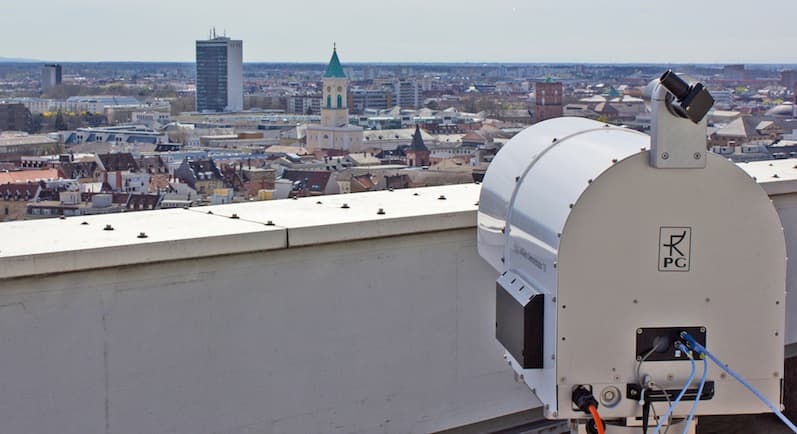World's Fastest Wi-Fi Router Does 40 Gbps From A Kilometer Away
The Germans did use a better hardware to transmit the data at 240 GHz. The hardware has been designed and developed at the KIT and comprises of a set of chips that process high frequency signals. The higher the frequency, the smaller can be the antenna size to pick up the frequencies. It also means a lot of data can be transferred in a shorter period of time. The number of bits carried over the airwaves is in inverse proportion to that of the wavelength. This means, the shorter the wavelength, the more data can be transferred in a set period of time.

A typical wireless network operates at 2.4-5 GHz and transmission speeds of a few MBs per second is common. At higher frequencies, moisture levels in the air factor in and may cause the signal to fade; however the research engineering team found that 240 GHz is the sweet spot at which the interference from moisture is negligible. The frequency range between 200-280 GHz allows compact technical assembly as well. At 240 GHz, the size of the transmitter/receiver chip measures only 4 x 1.5 sq.mm.
This technological advancement could open a number of avenues to improve broadband penetration in the world. Especially in reaching out to remote areas where laying out fiber-optic cables isn't a viable option. The wireless technology with high data transmission rates can help cutting down on the cable laying costs.
We recently wrote about the rapid development going on to make the <a href="https://www.crazyengineers.com/threads/5g-makes-4g-lte-look-boring-with-1-gbps-download-speeds.67941">5G Makes 4G LTE Look Boring With 1 Gbps Download Speeds</a> commercial by year 2020. 5G would allow connection speeds of 1 Gbps. It'd be interesting to see how the Internet speeds evolve in coming days. We are totally excited about the world's fastest wi-fi router. 40 Gbps would be a dream come true; what do you say?
Via: #-Link-Snipped-#
